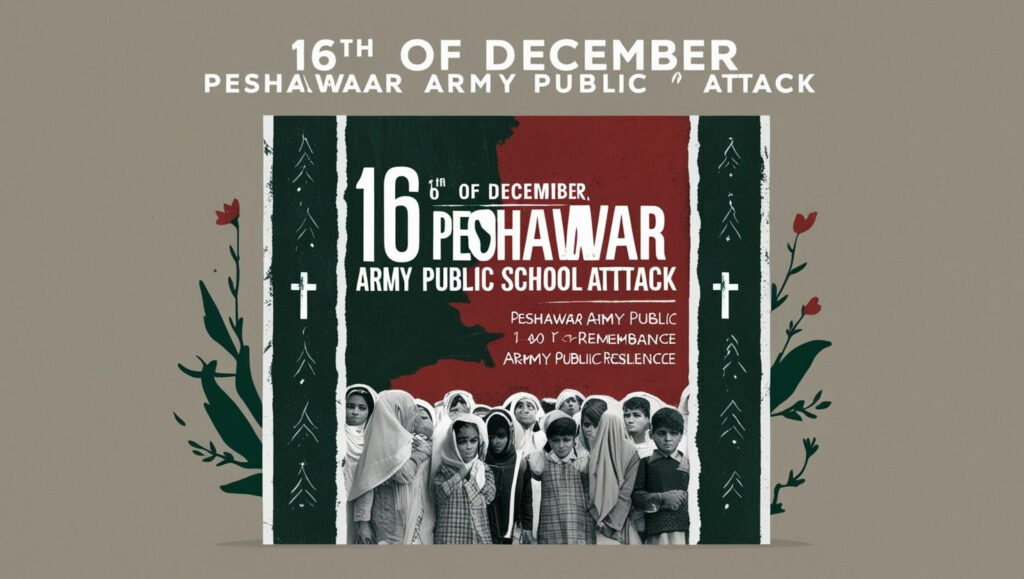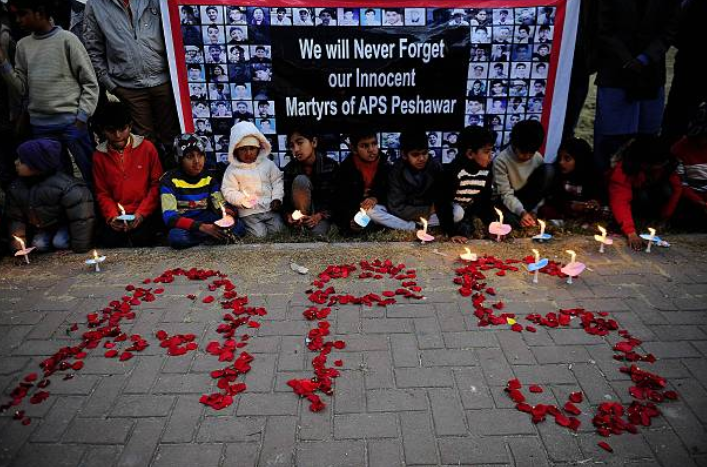What Happened on the 16 December Black Day?
Details of the Peshawar Army Public School Attack
The Peshawar Army Public School attack is one of the most devastating incidents in the history of Pakistan. On December 16, 2014, a group of militants affiliated with the Tehrik-i-Taliban Pakistan (TTP) carried out a brutal assault on the Army Public School in Peshawar, located in the Khyber Pakhtunkhwa province. The attack targeted innocent school children and teachers, leading to the tragic loss of 149 lives, including 132 children, making it one of the deadliest attacks in the country. The attackers, wearing military uniforms, infiltrated the school premises, starting a siege that lasted for several hours. This atrocity shook the nation to its core, drawing immense shock and grief globally.
The aftermath saw Pakistan’s government imposing stricter anti-terrorism measures, including the lifting of an unofficial moratorium on the death penalty, and launching Operation Zarb-e-Azb, a comprehensive military campaign against terrorist groups. The attack was widely condemned internationally and brought attention to the growing problem of terrorism in the region. Educational institutions across the country amplified security protocols to prevent future incidents. The Peshawar tragedy remains etched in the collective memory of Pakistan, serving as a grim reminder of the continuous battle against terrorism and the need for solidarity in safeguarding the nation’s future generations.
The attack was covered extensively by the media, making it accessible in HD quality broadcasts, providing viewers with a stark and clear picture of the devastation. Such coverage played a significant role in highlighting the urgent need for global attention and action towards combating extremism.
: 16 December Black Day: Remembering the Peshawar Army Public School Attack
Why December 16 is Remembered as a Black Day

December 16 is remembered as a Black Day due to various historical events associated with tragedy.
Most notably, it marks the 2014 Peshawar school massacre in Pakistan, where a terrorist attack led to the loss of over 140 lives, primarily children.
This day evokes strong emotions and serves as a reminder of the impact of violence and the need for peace.
Why is 16 December a National Reminder?
The Impact on Pakistan’s Educational Institutions
Pakistan’s educational institutions are at a crucial juncture, experiencing both challenges and opportunities. The rapid advancement of technology has the potential to revolutionize learning environments, providing students with access to a wealth of resources and interactive learning tools. However, disparities in access remain a significant hurdle, particularly in rural areas where infrastructure may be lacking. Meanwhile, curriculum reforms are underway to enhance the quality of education and ensure it meets global standards. It is imperative for policymakers to focus on sustainable investments and innovative solutions to bridge gaps and foster an inclusive educational system that benefits all.
Commemorative Events Held Annually
Commemorative events held annually play an essential role in honoring historical moments, recognizing individual achievements, and celebrating cultural heritage. These events foster a sense of community and connection among participants, offering a platform for reflection and education. They often include activities like ceremonies, workshops, and discussions, emphasizing the importance of shared values and experiences. Such gatherings also provide an opportunity for people to express gratitude and remember past sacrifices or accomplishments. In doing so, these annual events contribute significantly to the preservation of collective memory and the promotion of a more inclusive and informed society.
How is the 16 December Black Day Observed?
Memorial Services and Candlelight Vigils
Memorial Services and Candlelight Vigils offer meaningful opportunities for communities to come together in remembrance and healing. These gatherings provide a supportive environment for individuals to honor loved ones, share memories, and find solace in collective mourning. The serene ambiance of candlelight often serves as a symbol of hope and unity during these emotional times. Participants of Memorial Services and Candlelight Vigils are typically invited to reflect on the lives lost and reaffirm bonds of compassion and empathy among those present. Such ceremonies underscore the enduring significance of remembrance and shared humanity.
Public Statements and Tributes from Leaders
In today’s interconnected world, public statements and tributes from leaders hold significant importance in shaping public perception and fostering unity. These expressions not only convey heartfelt sympathies and respect but also offer guidance during challenging times. Leaders often utilize their platforms to voice solidarity and appreciation, reinforcing the values that bind communities together. With thoughtful articulation, these statements can inspire hope and resilience, serving as a beacon of encouragement. By valuing the power of words, leaders can create lasting impact and strengthen the bonds among individuals and nations, fostering a sense of collective responsibility and compassion.

